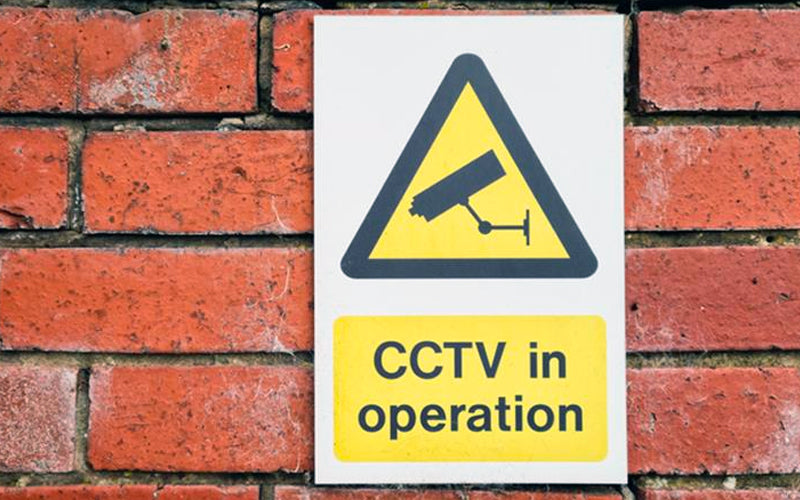
The law surrounding CCTV recording in the UK
In today's world, security systems like CCTV have become a common feature in many UK homes and businesses - offering peace of mind and enhanced security. From wifi-enabled doorbell cameras to multi-piece bullet camera systems, protecting your home has never been easier.
However, with the installation of home CCTV systems comes a set of responsibilities to ensure that their use is legal and respectful. Whether you use wired or wireless home security, equip yourself with the knowledge to legally protect your home and effectively use domestic CCTV.
Covering questions to ask yourself to key requirements, keep reading as we guide you through the steps you need to take to ensure your CCTV usage remains legal and respectful of others' privacy.

Is recording CCTV footage against the law in the UK?
No, it is not illegal to record CCTV footage in the UK. However, with CCTV recording capacity comes a responsibility to abide by GDPR and Data Protection laws, such as the Data Protection Act 2018, in order to keep your recordings above board and ‘legal’.
Generally speaking, any CCTV recording within the boundaries of your private domestic property is perfectly legal, and, as such, GDPR and Data Protection laws do not apply to you.
However, if you record beyond these boundaries, such as neighbour’s homes or gardens, shared spaces, or in public areas, then GDPR and Data Protection laws may apply to you. It is not a breach of Data Protection laws to record in these areas, but you will need to ensure that any use of CCTV and your recordings comply with these laws and regulations (which we will share how to do further down).
Who is the regulatory body for CCTV recording in the UK?
The Information Commissioner’s Office (ICO) role is to regulate and enforce the General Data Protection Regulation (GDPR) and the Data Protection Act 2018 in the UK. It is their job to ensure that your use of CCTV abides by these laws and regulations, otherwise you may be subject to regulatory action by the ICO.
Things you should think about before installing a CCTV system
Before installing a domestic CCTV system, you should first consider your reasons for requiring one and how your system could affect others. The ICO receives many complaints from neighbours and members of the public, who are concerned that they are being ‘spied on’ through CCTV systems.
If a complaint is made against you to the ICO, these are the questions that they will ask you, to justify your use of CCTV:
What are your reasons for installing a CCTV system?
You should have a valid reason for requiring CCTV on your premises. Usually, wanting to protect your home against crime is a good enough answer, but you should also consider:
- Could you use other means to protect your home, such as installing a security light?
- What exactly do you want your CCTV system to view and record?
- Does your CCTV system need to record all the time?
- Does your CCTV system need to record audio?
The way you answer these questions may indicate that you do not need a CCTV system. If it is considered to be invading people's privacy or breaking Data Protection laws, the ICO could ask you to remove your system later down the line.
How does your CCTV system affect others?
ICO complaints about CCTV systems are based on how CCTV makes others feel. Whilst you do have a right to protect your property, these security needs should be balanced with respecting other’s individual privacy rights. Ask yourself:
- Will you position the CCTV to minimise intrusion into your neighbours’ and other people’s privacy?
- Will the range of your cameras include your neighbours’ property, gardens, pavements or other areas?
- Could you consider other security systems that can reduce intrusion?
- How might your neighbours feel if you install a CCTV system?
The way you answer these questions will indicate how responsible you are being when installing a CCTV system. Should an ICO complaint be made against you, you need to be able to explain the measures you have taken to protect your other’s privacy - otherwise you could be asked to move or remove your system.
How to operate your domestic CCTV system responsibly
CCTV systems are often a necessary means to help protect your property against crime and anti-social behaviour, however, by installing such a system, it should be operated in a way that respects the privacy of others. The responsibilities that come with a domestic CCTV system include:
- Making sure that your CCTV system is installed correctly.
- All the information that is recorded by your system.
- Ensuring that the information is not used for any other purpose than protecting your property.
- Making sure that you read the manual, and if necessary, asking your installer to show you how to operate it and how to export footage (if required).
- Awareness of individuals’ data protection rights and taking steps to allow the people you record to exercise these rights effectively.
How to legally record CCTV footage in the UK

In order to avoid ICO complaints, and remove your risk of breaking GDPR and Data Protection laws, you should follow these steps:
1. Implement notification and signage
For your CCTV footage to be considered ‘legal’, you should have first informed people that they are being recorded. Whilst we do recommend personally talking to your neighbours and letting them know, you can instead notify others with signage and window stickers. These should be placed at eye-height and visible in dim-light conditions, clearly outlining your system (including if you have audio recording capacity in your CCTV system).
Without proper notification and signage, an ICO complaint can be made against you. If so, you could most likely be asked to remove your system until they are in place, and potentially even be subject to regulatory action by the ICO.
2. Know how to use recorded footage
Your CCTV recorded footage should only be for personal use. You cannot share this footage if other people are recorded and you do not have their consent to share, or you cannot hide their identity. These rules, however, do not apply to sharing recorded footage with law enforcement.
Should a neighbour ask for a recording that they feature in, you should make every effort to share the footage with them. However, you are not legally obligated to. If it is reference to a crime, you can instead offer to share the footage directly with law enforcement.
Sharing CCTV footage without the consent of those recorded is considered to be breaking GDPR and Data Protection law, where you could end up subject to regulatory action by the ICO (as well as legal action by those in the recording).
3. Securely store recorded footage
The footage you record on your CCTV system is where GDPR and Data Protection laws could affect you the most. All footage should be stored in an encrypted storage system, such as memory cards and surveillance grade hard drives or cloud-based storage systems, that is not accessible to anyone but yourself. Whilst most systems automatically delete footage after 30 days, it is important that you do not store any information longer than is necessary to protect your property.
A data breach, even considered out of your control, could still implement yourself if your recordings are not securely and appropriately stored. If so, you could face regulatory action by the ICO and legal action by anyone featured in leaked footage.
4. Appropriately maintain your CCTV system
As part of your responsibilities for having a CCTV system installed, you should regularly ensure that you are complying with GDPR and Data Protection laws, by following the steps above.
However, further responsibilities include maintaining that your CCTV system is still needed (should an ICO complaint be made against you), that it is still working effectively, and that the position of your cameras is still capturing the correct images and privacy intrusion on others is minimised.
Frequently asked questions about CCTV law in the UK

Can my neighbour have CCTV pointing at my house in the UK?
Legally, yes they can. Your neighbour’s CCTV camera should be used to record footage on the boundaries of their property, but it is not against the law for it to extend these boundaries onto your home. You can, however, request that your neighbours adjust their camera to limit the intrusion onto your property, though they do not have to comply.
We recommend asking your neighbour to allow you to review the footage, so that you can see whether the camera is, in fact, pointing at your house - though they are allowed to refuse.
Do you legally have to tell people you have CCTV?
Yes, you legally have to tell people you have CCTV. You do not have to verbally inform people, but you should have appropriate signage that lets people know.
Do I have a right to view CCTV footage?
If you have been recorded on someone’s home CCTV camera, then you can contact the owner to request to view the footage. The owner should reasonably comply with your request, unless other people can be seen in it or they’re not able to edit out people to protect their identity. If the CCTV footage in question relates to a crime, the owner could instead give the footage directly to the police.
Is CCTV against human rights?
No. According to the Human Rights Act 1998, everyone has a right to privacy. However, if a CCTV system has a legitimate purpose and is used proportionately, along with appropriate signage, then it is not against your human rights.
How to report neighbour’s CCTV
If you would like to report your neighbour’s CCTV use, you should first try and resolve this yourself by talking to them. Should this not resolve matters, you could try a mediation service, or you can report them to the ICO.
Can I refuse to give the police my CCTV?
We do not recommend refusing to give the police your CCTV footage, as they will only ever request it when necessary to solve crimes local to you. Rest assured that the police have certain measures in place to ensure it is only used in safe and appropriate ways.
If you do choose to refuse to give the police your CCTV footage, they can have power under Section 1 of the Police and Criminal Evidence Act 1984 to seize that recording - should they deem the recording necessary as part of their investigation.
Ready to protect your home with CCTV cameras? Shop our huge range of covert cameras and CCTV systems, providing you with the best CCTV systems for your home.
Check out our blog for more helpful information about CCTV systems, or get in touch today for expert advice.

